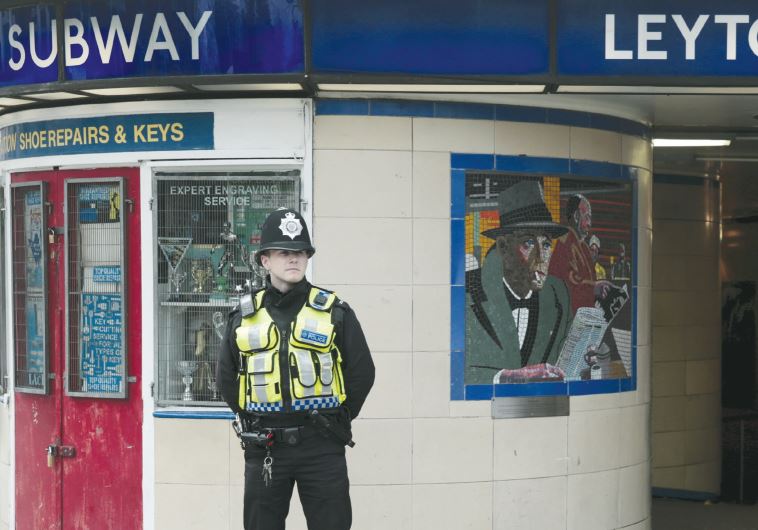A convenient response
The assailant in London's most recent stabbing survived, and unlike many Palestinian knife attackers in the “stabbing intifada,” he was not shot.
 A police officer patrols outside Leytonstone Underground station in east LondonUpdated:
A police officer patrols outside Leytonstone Underground station in east LondonUpdated: